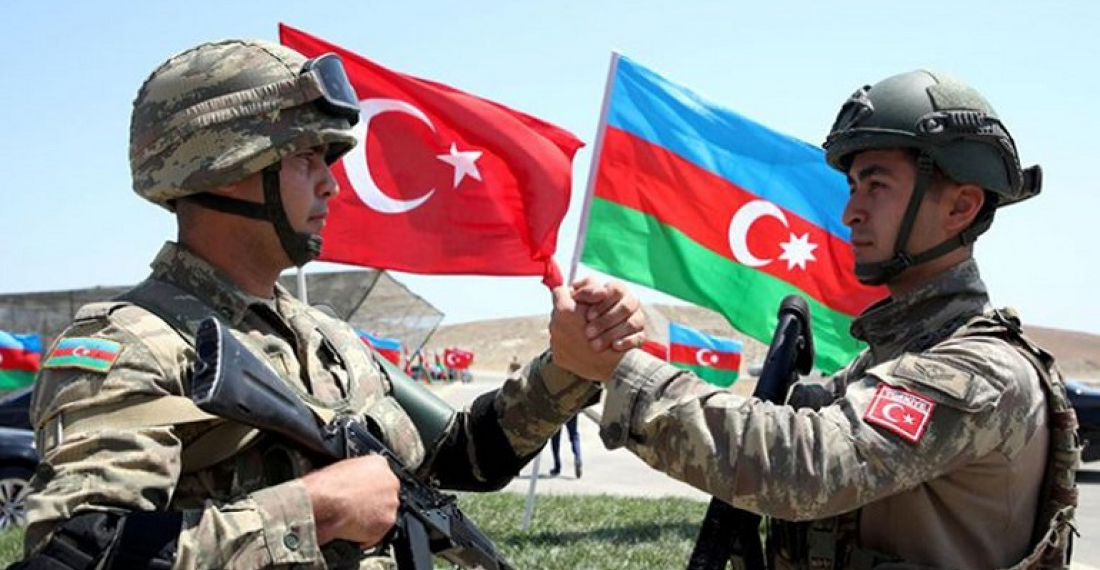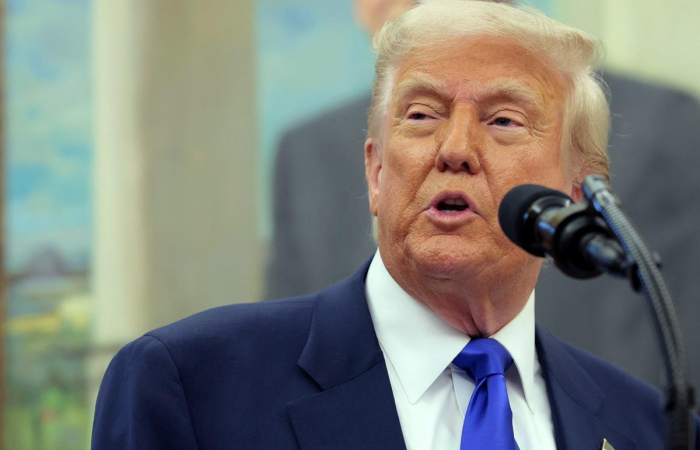Historical and ethnic ties link Azerbaijan and Turkey, but Turkey's overt support for Azerbaijan's military in the current conflict in the South Caucasus has introduced a Turkic wild card in the ongoing crisis. William Murray analyses the background and asks what has caused this change of tactic
Since the re-emergence of hostilities between Armenia and Azerbaijan on Sunday (27 September), questions have arisen regarding intervention by third parties to the conflict, with eyes fixed on Russia and Turkey - the main allies of Armenia and Azerbaijan respectively. Whilst the former has long played a role within the Nagorno Karabakh dispute, giving the semblance of a more-or-less neutral party - balancing its numerous alliances with Armenia by selling weapons to Azerbaijan - it's involvement in the recent fighting has been limited to statements calling for the sides to return to the OSCE Minsk Group-mediated negotiation table. The latter, however, appears to be taking a much more hands-on role in support of Azerbaijan.
On Monday (28 September) Armenia accused Turkey of providing direct military support to Azerbaijan during the flare up of violence, with a spokesperson from its foreign ministry claiming, 'Turkish military experts are fighting side by side with Azerbaijan, who are using the Turkish weapons, including UAVs and warplanes.' Such accusations have continued throughout the week's fighting and on Wednesday (30 September) Armenia reported that a Turkish F-16 aircraft, supporting Baku's forces, downed one of its Su-25 aircraft. Armenia also claims that Turkey is providing Azerbaijan with boots on the ground in the form of Syrian mercenaries from the Turkish-backed Syrian rebel groups - accusations supported by reports in several credible media outlets.
Despite both Azerbaijan and Turkey denying Turkish military support in Nagorno Karabakh, Ankara announced in a statement on Tuesday (29 September) that it was 'fully committed' to helping Azerbaijan recover Nagorno Karabakh. These comments were condemned by Turkey's NATO allies in the West, with French President Emmanuel Macron referring to the comments as 'reckless and dangerous'. Macron added that such statements 'remove any inhibitions from Azerbaijan in what would be a reconquest of Nagorno Karabakh', which France 'will not accept'. In light of Turkish involvement, Macron also appeared to throw his support behind Yerevan, stating 'I say to Armenia and to the Armenians, France will play its role'. Russia has also urged Turkey to 'do everything to convince the opposing sides to cease fire and return to a peaceful settlement of this longstanding conflict via political and diplomatic means'. Turkey's responses have placed a heavy emphasis on Azerbaijan's legal right to the territory, with Turkey's Foreign Minister Mevlut Cavusoglu suggesting that French solidarity with Armenia amounts to supporting the illegal occupation of Azerbaijani lands.
Turkey has long been a vocal supporter of Azerbaijan's territorial integrity, including to Nagorno Karabakh - co-sponsoring the 1993 UN Security Council Resolution 822 affirming this - but it has up to now maintained its support for a peaceful resolution to the conflict. Ankara's recent statements appear to mark a change in policy.
The question must now be asked what has led to this change.
There is no shortage of historical push and pull factors for Turkey's involvement in the conflict. On the one hand, its relations with Armenia have long been fraught and somewhat characterised by Turkey's refusal to acknowledge the mass extermination of ethnic Armenians by the Ottoman empire between 1915 and 1917 - often referred to as the Armenian Genocide. Whilst Turkey did recognise Armenia as a state in 1991 at the fall of the Soviet Union, it closed its borders to the country in 1993 in solidarity with Azerbaijan over Nagorno Karabakh. On the other hand, Turkey regards Azerbaijan as a 'brother state' due to their shared Turkic heritage, with the countries referring to themselves as 'one nation with two states' - the words of former Azerbaijani President Heydar Aliyev. Indeed, Foreign Minister Cavusoglu's response to calls for Turkey to stand down echoed these words, adding, 'Azerbaijan's problem is our problem, its trouble is our trouble. They should not try to portray Turkey and Azerbaijan separately'.
In the 1990s Turkey agonised as Azerbaijan forces were routed by Armenians, with some measure of Russian support, but did not intervene. At the time the Turkish government deferred to its military on most defence and foreign policy issues. The Turkish military on its part deferred to NATO and the US, especially on issues related to Russia. NATO and the US did not want Turkey entangled in a war that could potentially involve Russia in the Caucasus, so the Turks watched on and did nothing as Armenian forces swept across Nagorno Karabakh and other Azerbaijani territory. Many in Turkey have often argued that was a mistake. It seems that this time round they are not willing to make the same mistake twice.
In the recent months, there have been a number of incidences that Azerbaijan refers to as provocations by the Armenian side, such as the decision to move the parliament of the de facto authorities in Nagorno Karabakh from Stepanakert to Shusha - a city of historical sensitivity to Armenians, Azerbaijanis and Turks. It has also been highlighted that clashes between Armenia and Azerbaijan in July directly threatened Turkish economic and energy security by virtue of where they took place. Unlike this week's hostilities, the clashes in July happened on the internationally recognised Armenian-Azerbaijani border towards the north of the two countries. Since then, former Turkish Foreign Minister, Yasar Yakis, suggested that these skirmishes may be indirect attacks on Turkey by Armenia, as they occurred in the Tovuz region of Azerbaijan, far from the disputed territory and in which the Baku-Tbilisi-Ceyhan oil pipeline, Baku-Tbilisi-Kars railway, Turkey-Georgia-Azerbaijan highway, and the Trans-Anatolian gas pipeline (TANAP) are situated. This infrastructure, circumventing Armenia, is all important to Turkey's economy and energy security. However, promoting war in the South Caucasus puts this infrastructure at risk, so in and of itself cannot be said to be the reason for Turkey's involvement.
Whatever the reason, Turkey has become the wild card in the unfolding situation, and one which no side can ignore. Up to now Turkish support for Azerbaijan has been largely symbolic, and not perhaps significant enough to change the balance of power on the ground. But with a large and seasoned standing army Turkey has the capacity to intervene if it wants to in what is, after all, its back yard.
It is all possible that Turkey's endgame is not to be party in the war, but a party in the peace process that follows. Armenia is adamant on not wanting that, but others may think that it is better to have Turkey in the tent than outside.






